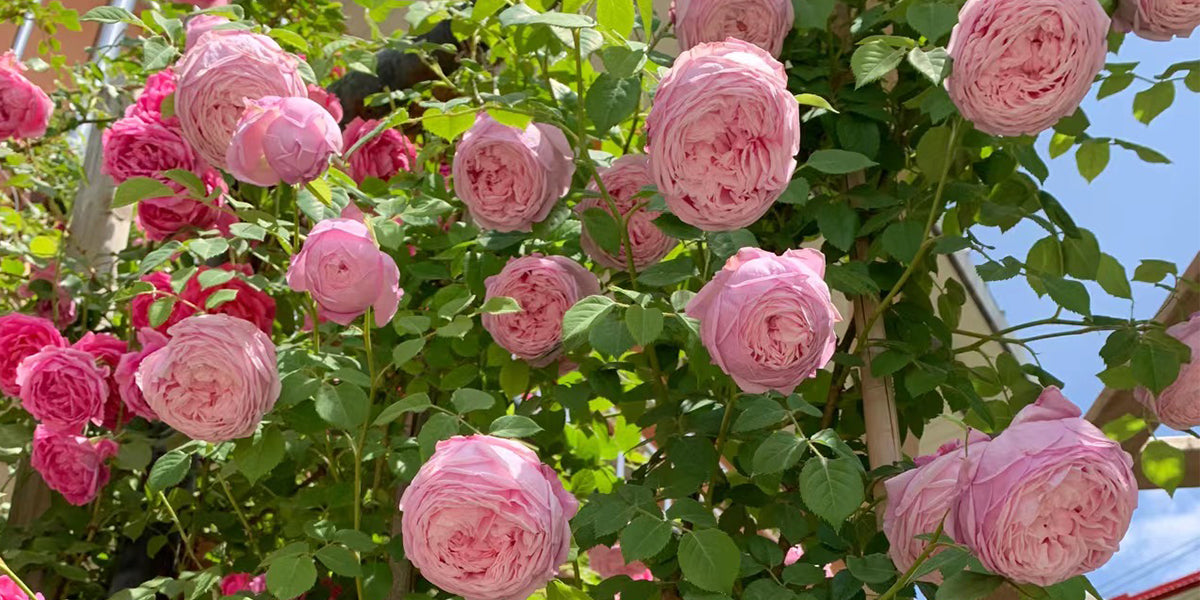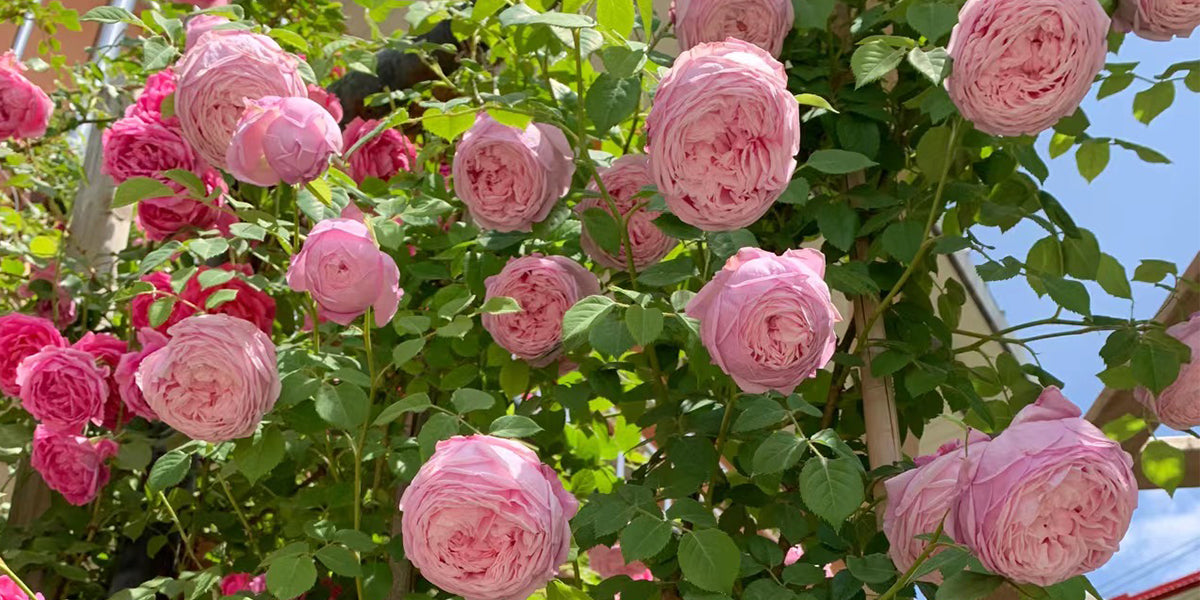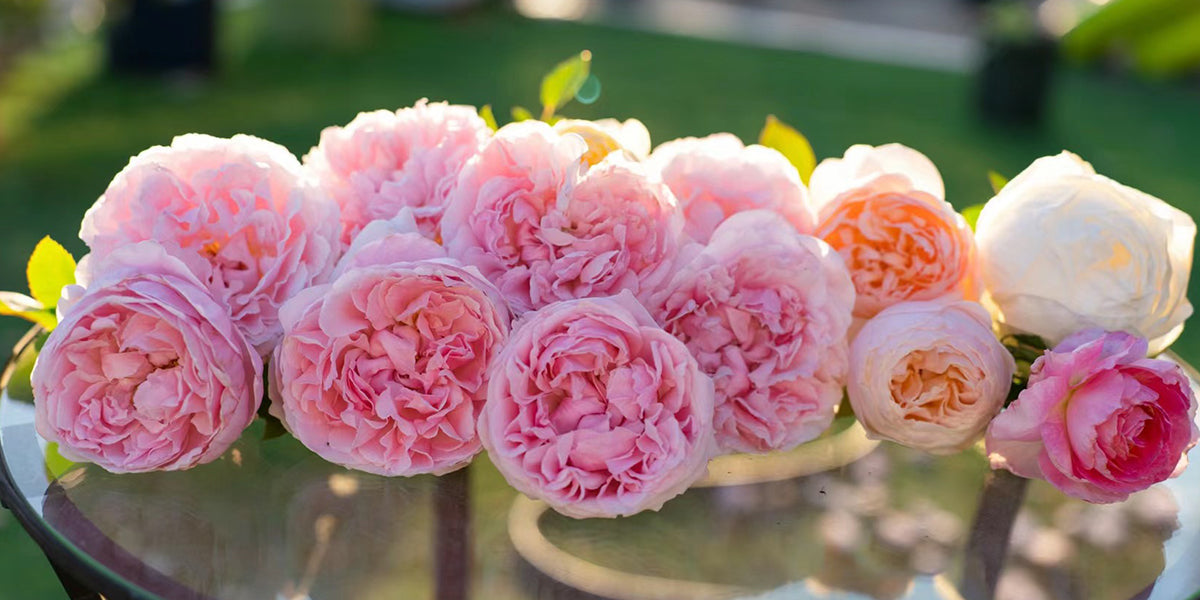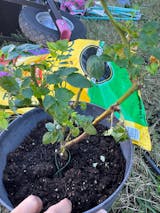If you’ve recently fallen in love with roses and started growing your own, you may have come across two terms that often cause confusion: florist roses and garden roses. Many new growers assume florist roses can only be cultivated in greenhouses, while garden roses belong strictly outdoors—but the truth is much more nuanced.
At Highgarden Roses, we grow both types side by side, and the distinction between them is less about where they’re grown, and more about why they were bred in the first place.
🌹 The Main Difference Lies in Their Purpose
Florist roses were developed primarily for the cut-flower industry. Breeders focused on long vase life, perfect form, and sturdy stems that can withstand transport and handling. These are the roses you often see in high-end floral arrangements, wedding bouquets, and luxury boutiques.
Garden roses, on the other hand, were bred for outdoor enjoyment—for their fragrance, charm, and romantic blooms rather than their durability as cut flowers. Many of the most fragrant varieties belong to this group, including beloved cultivars like Jude the Obscure and Gabriel.
🌿 Growing Conditions: Not Just for Greenhouses
One of the most common misconceptions is that florist roses can only be grown in greenhouses.
While commercial growers often use controlled environments for uniform production, florist roses can absolutely be grown outdoors in home gardens—and many of them thrive beautifully when given the right conditions.
At Highgarden, we cultivate numerous florist varieties under open skies here in Oregon. The key is good air circulation, consistent watering, and preventive care against fungal diseases—the same principles that apply to all roses.
🌼 Disease Resistance: A Spectrum, Not a Rule
It’s generally true that florist roses weren’t bred with disease resistance as a top priority. Because they were designed for greenhouse production, they often need a bit more attention when grown outdoors. However, this is far from a universal rule.
For example:
-
Romantic Antike, a florist rose, is impressively disease-resistant and hardy, performing beautifully even without greenhouse protection.
-
Meanwhile, some garden roses like Gabriel or Summer Song—though exquisite in form and fragrance—can be susceptible to black spot or powdery mildew and benefit from a bit of extra care.
Each variety is unique, and that’s part of the joy of growing roses—discovering their individual personalities and preferences.
🌸 Why You Might Want Both in Your Garden
Florist roses and garden roses complement each other wonderfully:
-
Florist roses bring refined form, abundant petals, and long vase life—perfect for cutting and arranging at home.
-
Garden roses add unmatched fragrance, natural grace, and nostalgic beauty that transforms your garden into a living perfume.
Combining the two gives you the best of both worlds—roses that delight both in the vase and in the garden.
🌤 Final Thoughts from Highgarden Roses
Whether you prefer the sculpted elegance of florist roses or the romantic fragrance of traditional garden varieties, both deserve a place in the modern garden. What matters most isn’t the label—but how much joy they bring you.
At Highgarden Roses, we carefully select florist and garden varieties that perform beautifully outdoors, even in home gardens. With thoughtful care and attention, your roses—no matter their origin—will reward you with a season full of blooms and beauty.






